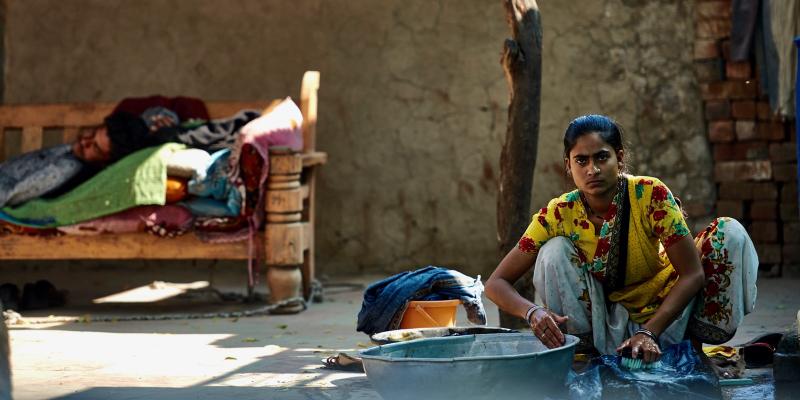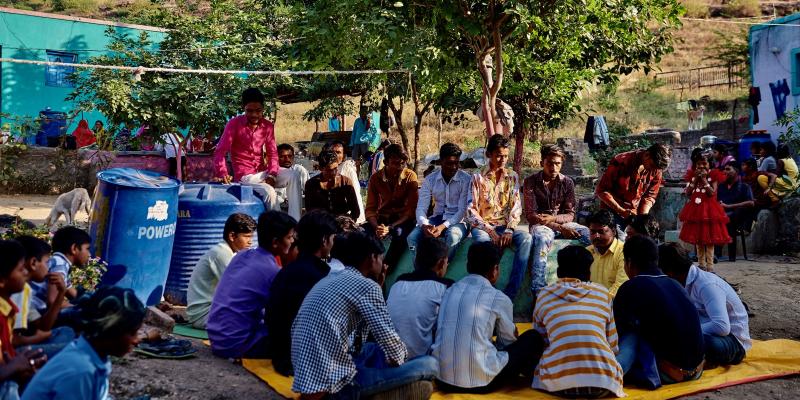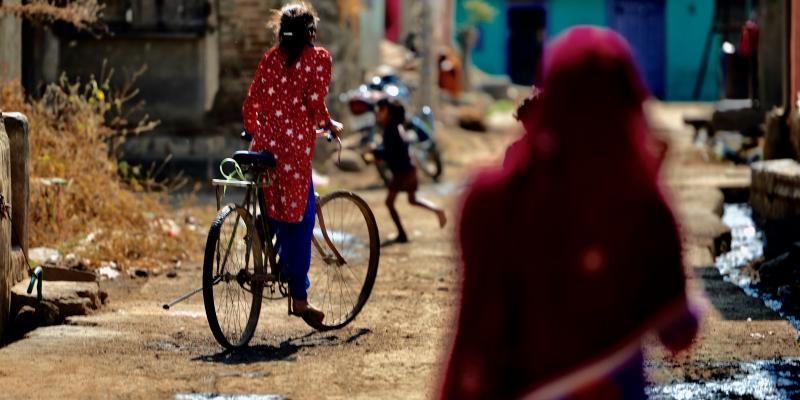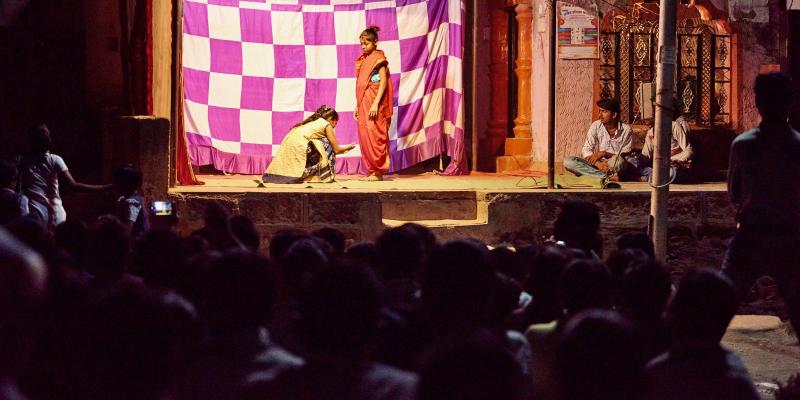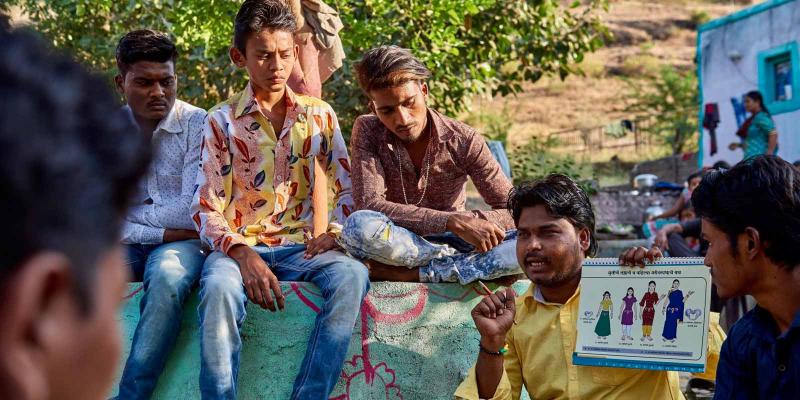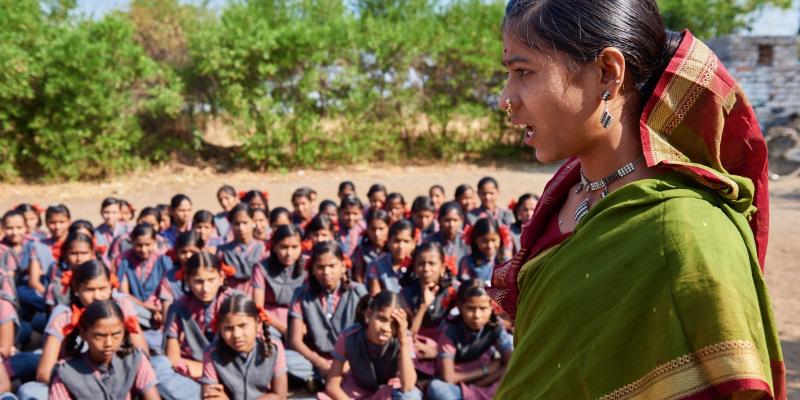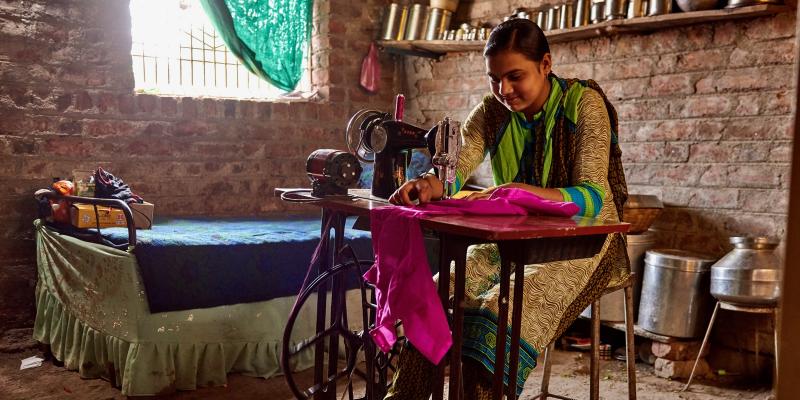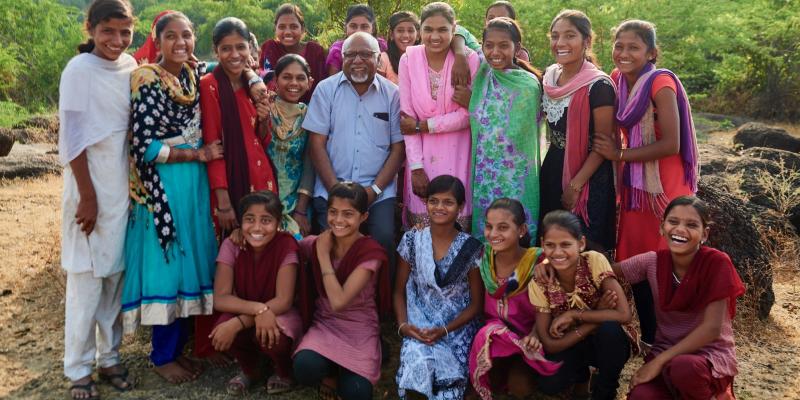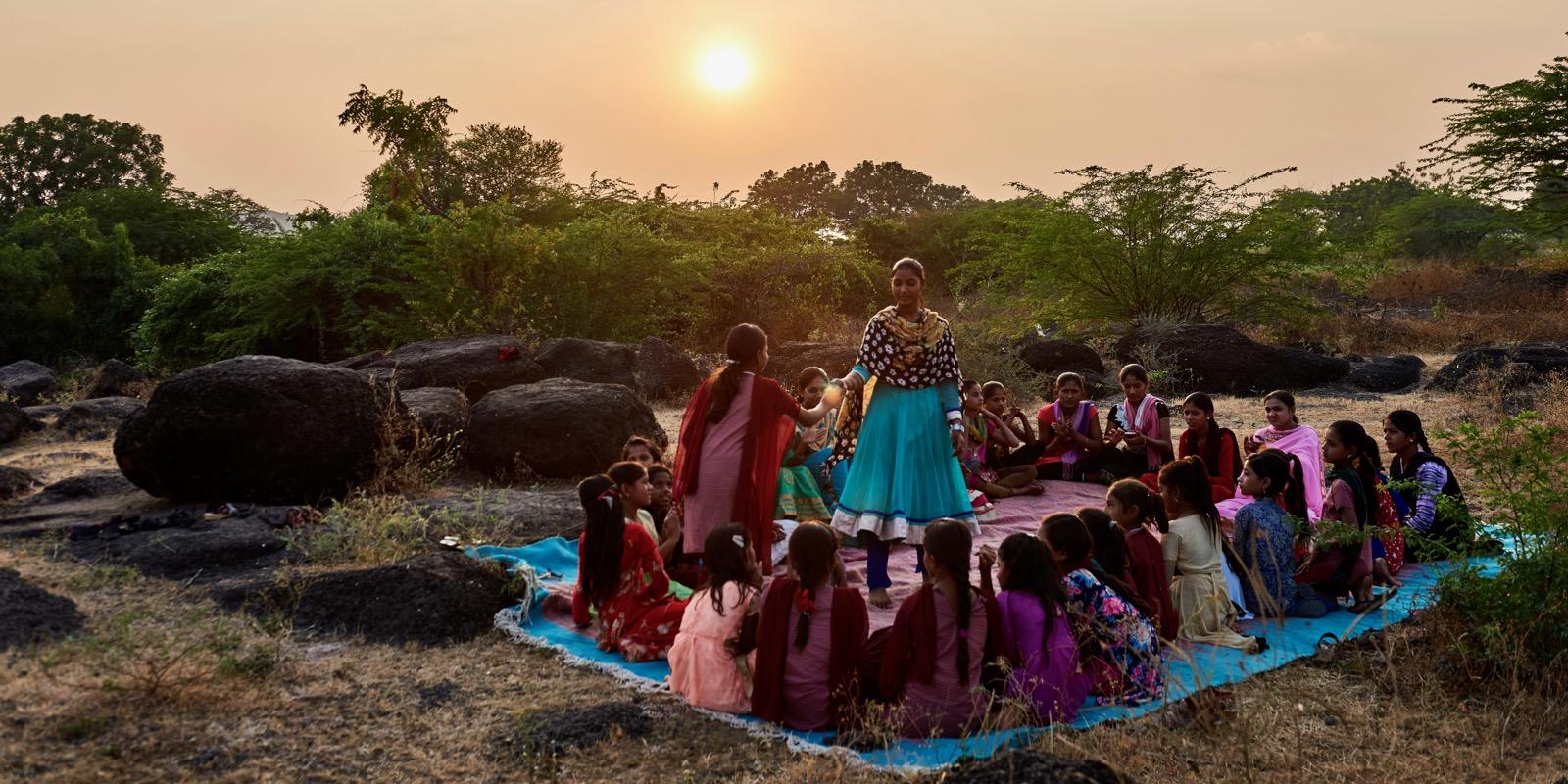
That day, two years ago, was just like any other. Me and mum were sitting by the fire, chatting and cooking together. She was making a vegetable curry and I was baking chapati bread. While we were sitting there, a woman, who is a family friend, stopped by to visit. There’s nothing strange about that. Relatives, neighbours and friends often visit one another in our villages. We ate, talked and had a nice time. But a bit later, after dinner, everything changed. I heard the woman suddenly say:
‘I want you to give me your daughter Salia as a wife for my son.’
“I was shocked and started crying. I really didn’t want to get married. I wanted to go to school, which I loved. I was just 13 years old, and I knew that her son was at least ten years older, that he was an adult man. It felt surreal.”
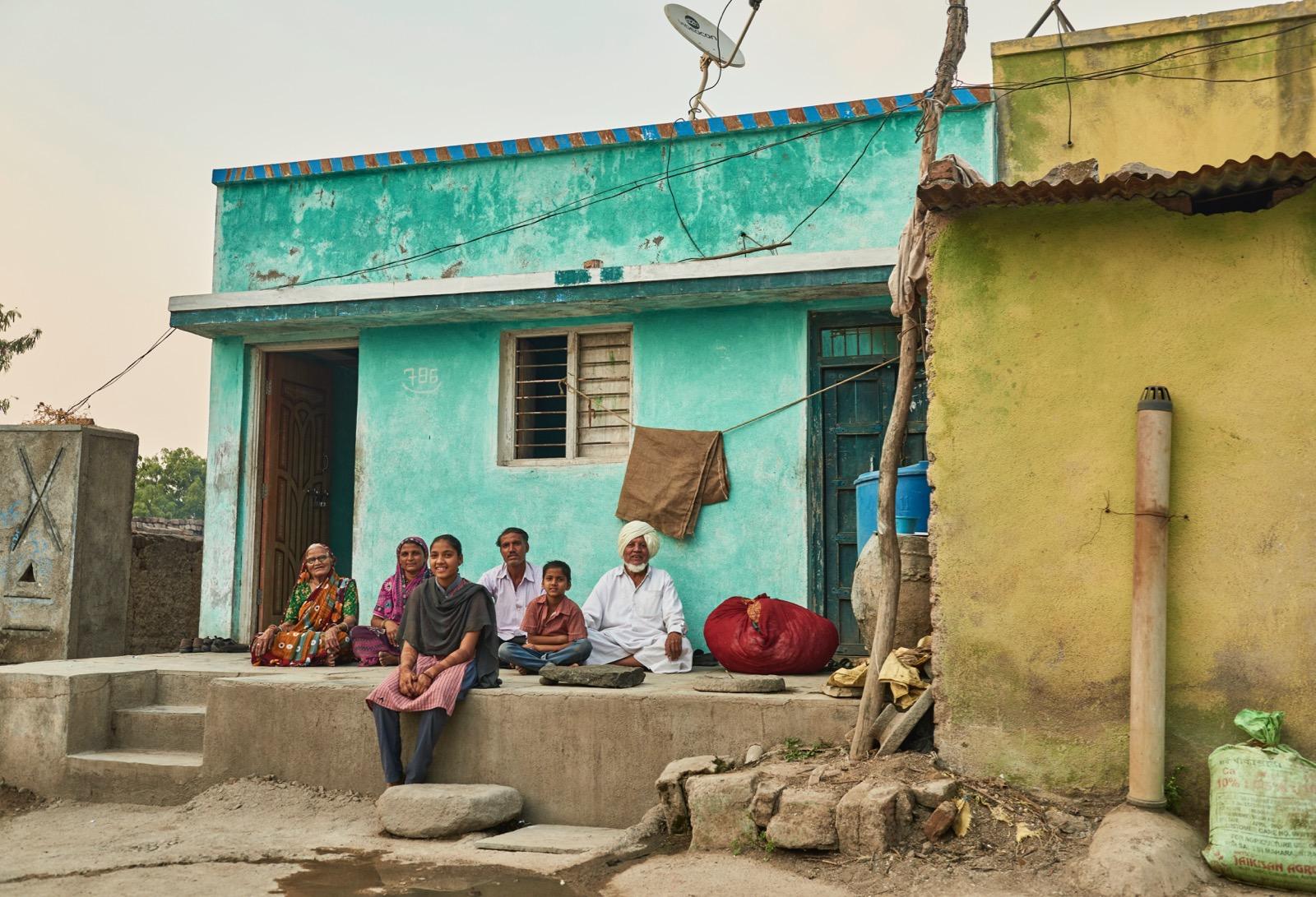
Salia, 15
Lives in: The village of Brahmangaon.Loves: My little brother!
Hates: The fact that us girls and our opinions don’t count.
Best thing that’s happened to me: When I managed to stop my child marriage.
Worst thing that's happened to me: When they were planning my marriage.
Wants to be: A teacher or social worker in Ashok’s organization, IHMP.
Looks up to: My grandfather. He respects me and listens to everything I say. I also look up to everyone at IHMP fighting for our rights. I want to be like them!
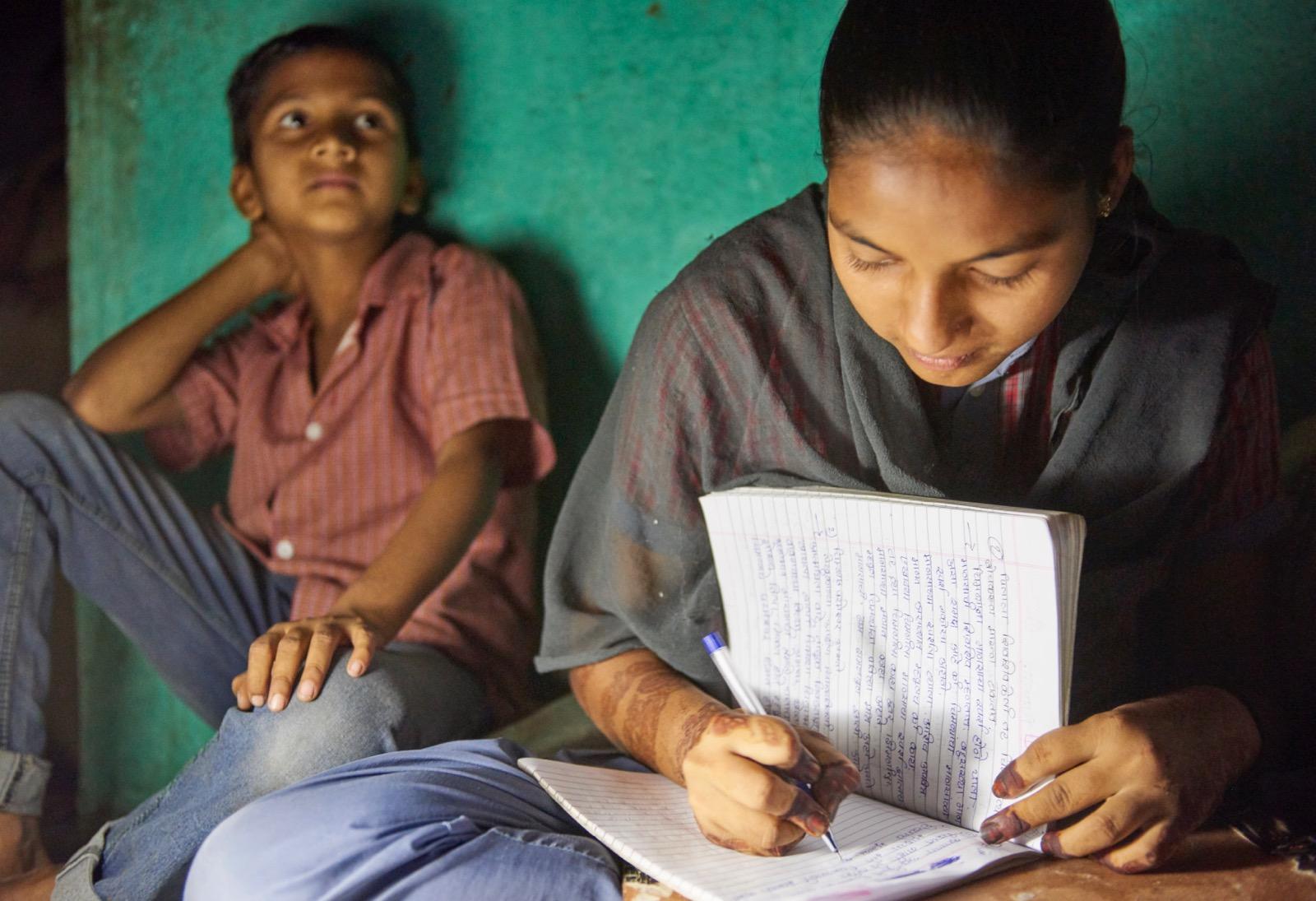
“The nicest things I own are my school things. My books, pens and schoolbag,” says Salia, doing homework together with her little brother.
We put up a fight
“I was in one of Ashok’s Girls Clubs, and I’d learned a lot of bad things about child marriage. I knew that I would be forced to quit school and that there was a high risk of me and my baby dying if I fell pregnant. But most of all, I knew that child marriage was illegal.“I was worried and angry. It felt so strange that my family were sitting and discussing marrying me off. I cried and couldn’t sleep that night. The thoughts were buzzing around my head. The woman stayed the night, but the next day I didn’t say a word to her before I went to school. It felt like she wanted to destroy my life. And when I got home from school, it was impossible to concentrate. It hurt too much."
“I was so worried that I decided to ask my friends Rojina and Saima for help. They were also in the Girls Club. Together we decided to put up a fight. Even though, of course, I felt really awful, it felt better not to be alone.”
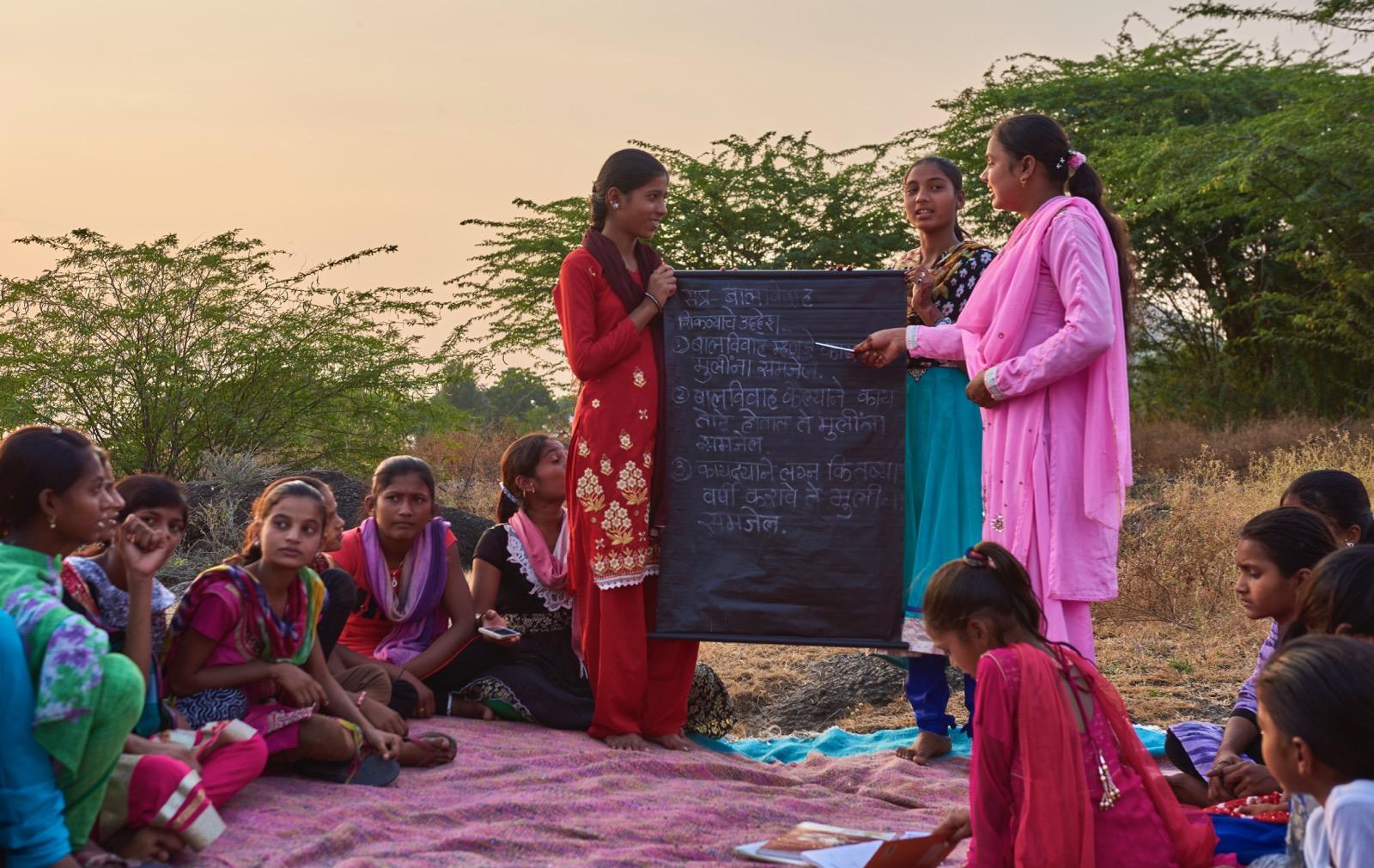
The sign that Salia, Rojina and Saima are showing the others says:
Learning objectives
What is child marriage?
What are the disadvantages of child marriage?
What is the legal age of marriage for a boy and a girl?
Hunger strike
“Rojina came home with me after school and told my parents about a girl who had been forced into an arranged child marriage. The girl had been so distressed that she took her own life by drowning herself in the village well.“My mum got worried when she heard this and talked to my dad. I knew that dad was actually on my side, but I was still worried that he would feel under pressure to go along with the woman’s proposal.
“While we were teaching my mum, dad and the rest of the family about child marriage and girls’ rights, I began a hunger strike. I said: ‘I’m not going to eat anything until you call off this wedding. I want to go to school! I refuse to get married!’
“Finally, my whole family understood that I was serious and they cancelled the wedding. I was so happy and I felt free! But the woman and her family were very angry and disappointed. They’re still not speaking to us after the whole thing.”
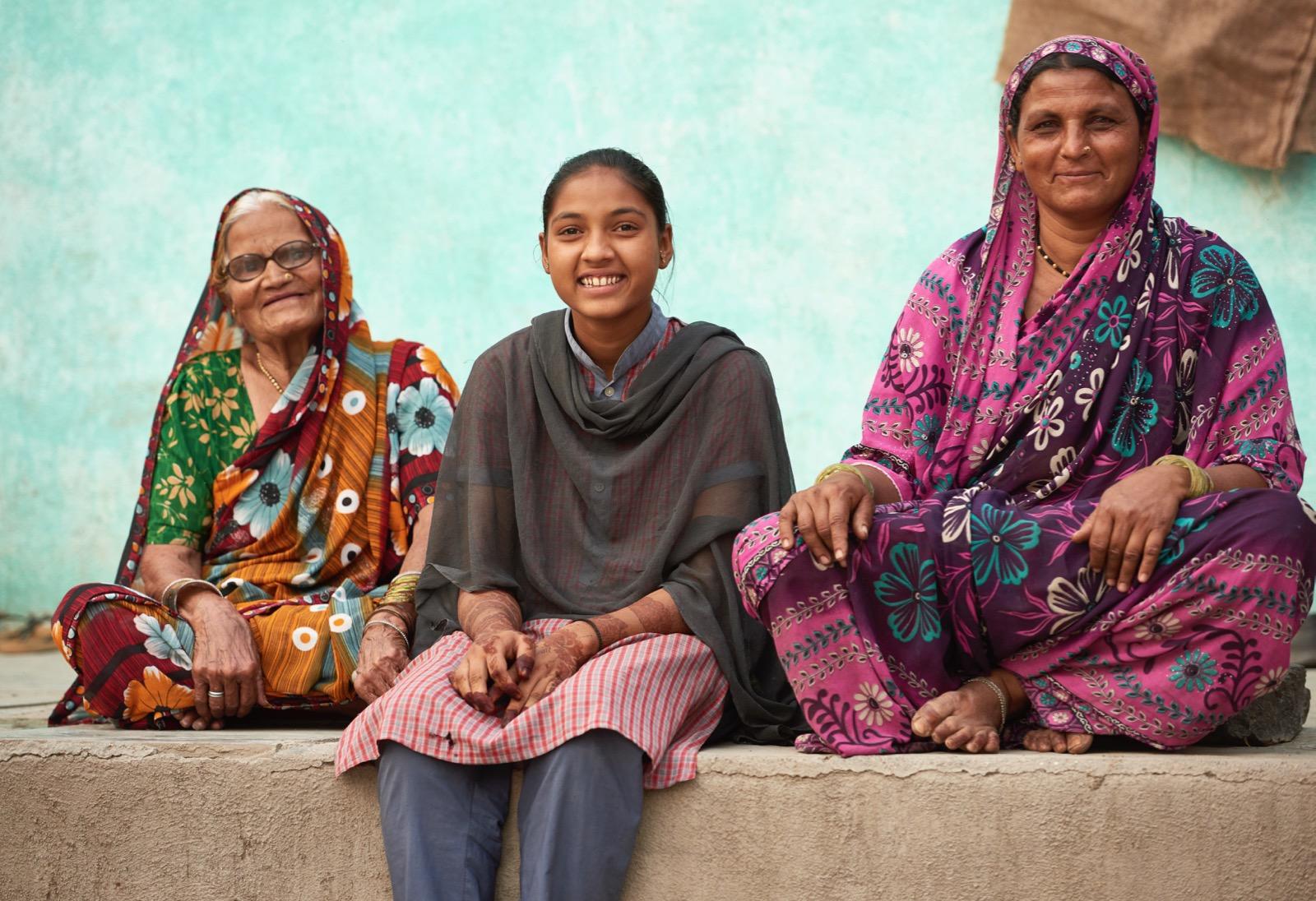
Three generations
Both Salia’s mum Sajida and her grandma Jeitun were married when they were 12 years old.“When I was young, girls didn’t go to school. No-one thought about us. I think it’s really good that Salia hasn’t married yet, and that she’ll get to finish school and have a good future,” says her grandma.
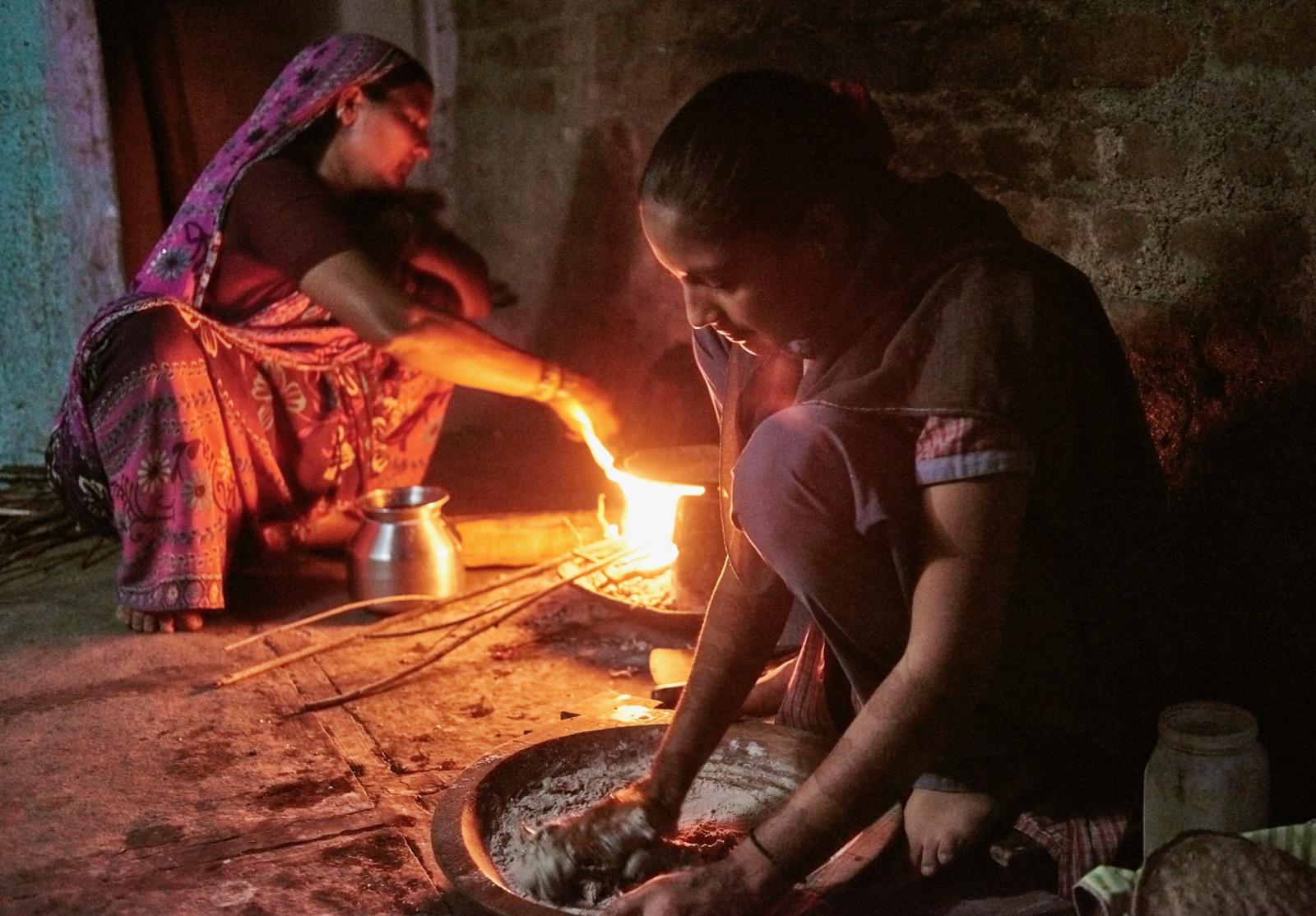
Salia grinds chilli and makes chapatis together with her mother.
Ashok’s Girls Club
“It’s thanks to Ashok’s Girls Club that I gained the knowledge, support and courage to dare to talk to my family and fight against child marriage. Ashok saved my life and I’m so grateful!“I joined the Girls Club in our village when I was 13 and I’m now a peer leader of a Girls Club myself. We meet twice a week and my friends Rojina and Saima come too. There are twenty of us who meet every Wednesday and Saturday, and I love it! The meetings last two hours. We spend time together and have fun, but we mainly talk about girls’ rights.
“Girls suffer many rights violations here. Us girls never get to choose whether or not we can go to school. We never get to choose whether, or when, we’re going to marry. Girls always do all the work at home because families and society believe we need to prepare for life as a married woman. To be able to take care of our husbands and children. So we fetch water, cook, wash up, clean and wash clothes. And on top of that try and find time for school and homework, if we’re lucky enough to get to go to school! Sometimes the boys help their dads with farming, but often they don’t do anything other than hang out with their mates. It’s not right!”
What we’re doing is right!
“The Girls Club gives us knowledge, and together we are stronger. It boosts our confidence and we are bolder about saying what we think. And now that there are a lot of us, people listen!“We bring both adults and children together at village meetings and we tell them about girls’ rights. When we last had a demonstration march through the village, there were just forty of us girls when we started, but more joined along the way and by the end of it there were loads of us! We held placards and shouted that child marriage had to stop, and that girls’ rights must be respected. Of course, some of the adults weren’t happy with us, and some lads teased us and laughed, but we didn’t care. We know that what we’re doing is right.
“This is important to me. I want other girls to have the courage to say no to child marriage, like I did. For all girls to know their rights, so we can defend ourselves when our rights are violated.”
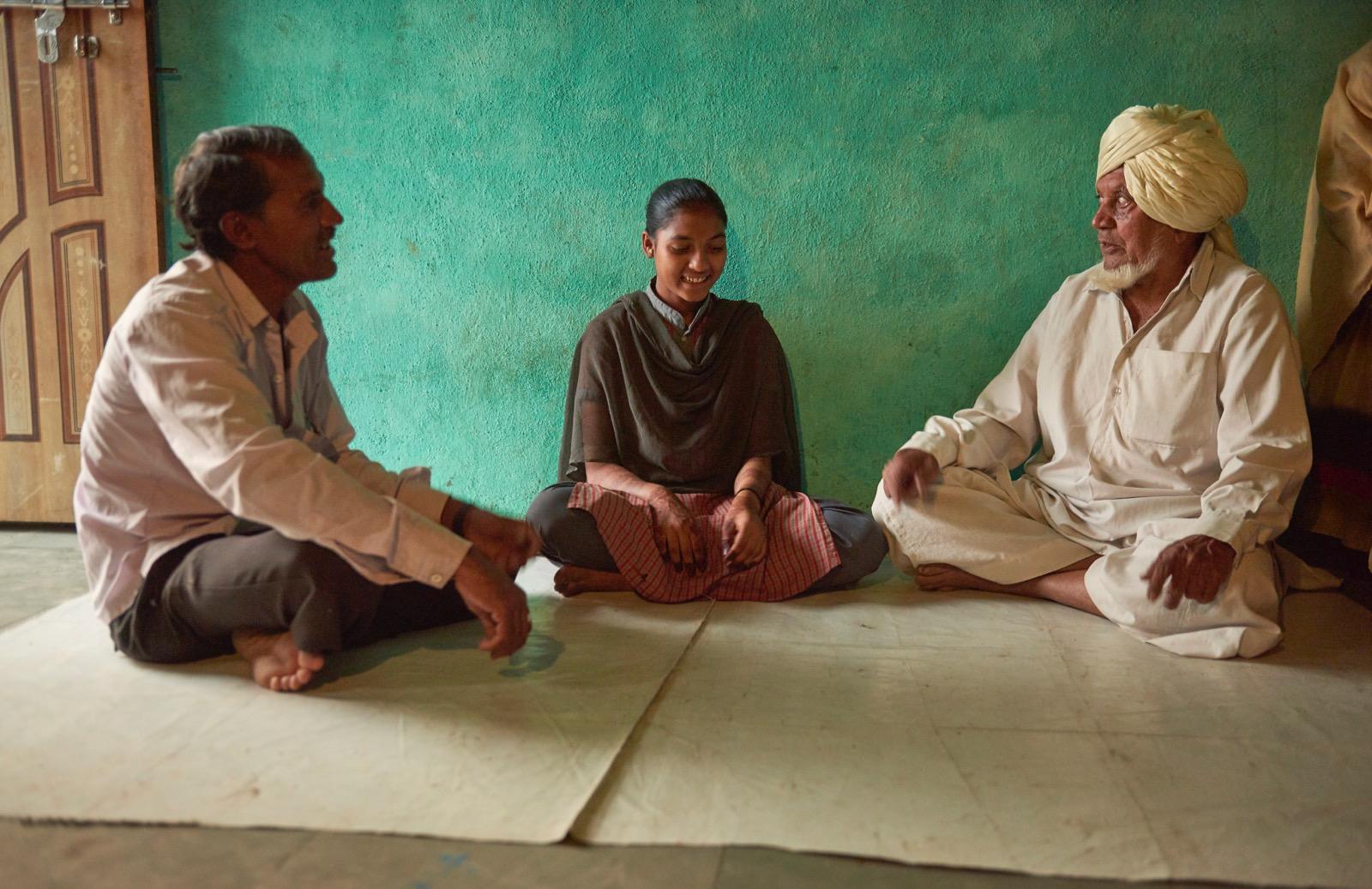
“In my family my mum and dad make decisions together. But it’s more usual for the dad to have the most power in a family, and to decide whether or not a marriage is to be arranged. I love my dad Samad because he chose to cancel my wedding! And my grandfather Jalal has completely changed his mind. At first he thought that the wedding was a good idea, but now he doesn’t at all. He’s proud that I’m the peer leader of a Girls Club and that I travel to the town of Pachod for more training in girls’ rights. He likes to accompany me on the way, and that makes me happy!”
Why are girls forced into child marriage?
Salia thinks that child marriage is mainly down to three factors:Financial
If a family is poor, they can marry off a daughter and then there’s one less mouth to feed.Safety
When a daughter reaches puberty, the parents worry that she might be raped or exploited in some other way. They think she’s safer within a marriage.Honour
If you make sure your daughter isn’t raped, doesn’t have boyfriends or other relationships outside marriage, it protects the family’s honour.Dad and grandfather are good men
“In my family my mum and dad make decisions together. But it’s more usual for the dad to have the most power in a family, and to decide whether or not a marriage is to be arranged. I love my dad Samad because he chose to cancel my wedding! And my grandfather Jalal has completely changed his mind. At first he thought that the wedding was a good idea, but now he doesn’t at all. He’s proud that I’m the peer leader of a Girls Club and that I travel to the town of Pachod for more training in girls’ rights. He likes to accompany me on the way, and that makes me happy!”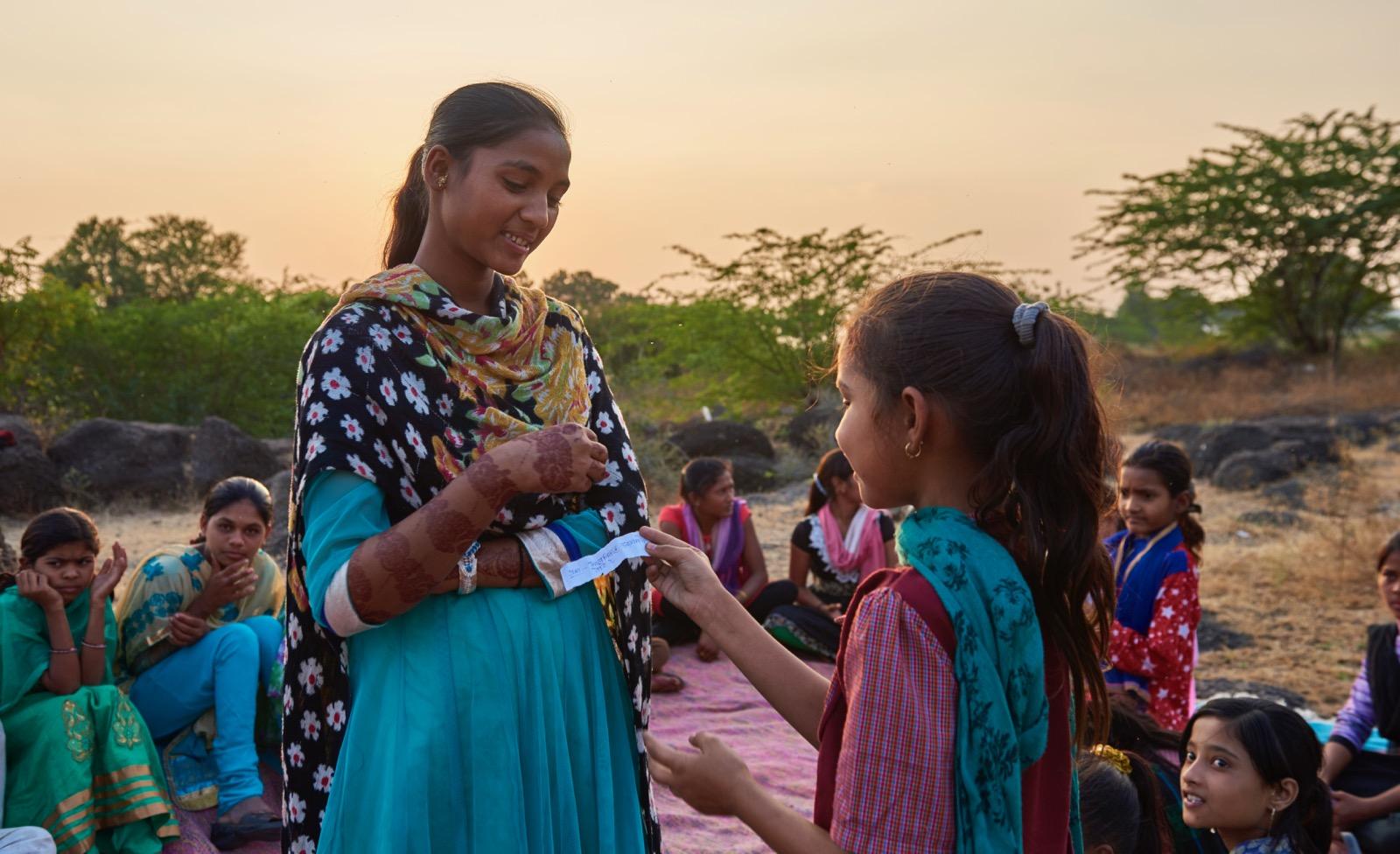
The Girls Club is freedom
“The Girls Club is the only place where we can be completely free. We can meet there and learn important things about our lives, chat, laugh and share our problems. These kinds of places to meet and opportunities don’t normally exist for us girls. In villages like mine, girls don’t get the chance to talk. Our opinions don’t count. We’re not listened to. Without Ashok and IHMP, we would never have had this freedom,” says Salia.
Peer leader for our club
“When my friends in the village, who are the same age, and I had completed the Life Skills Education Class that Ashok’s organization runs, the other girls chose me to be a peer leader for our club. I was really happy and proud! Together with peer leaders from other villages, I go to Ashok’s organization regularly to learn even more about girls’ rights and about how to teach the Life Skills Education Class,” says Salia.Related stories
Långgatan 13, 647 30, Mariefred, Sweden
Phone: +46-159-129 00 • info@worldschildrensprize.org
© 2020 World’s Children’s Prize Foundation. All rights reserved. WORLD'S CHILDREN'S PRIZE®, the Foundation's logo, WORLD'S CHILDREN'S PRIZE FOR THE RIGHTS OF THE CHILD®, WORLD'S CHILDREN'S PARLIAMENT®, WORLD'S CHILDREN'S OMBUDSMAN®, WORLD'S CHILDREN'S PRESS CONFERENCE® and YOU ME EQUAL RIGHTS are service marks of the Foundation.



